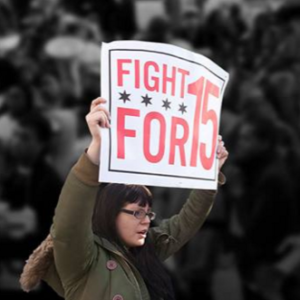More than half of business owners in a D.C. Chamber of Commerce poll last year said they would eliminate jobs if the minimum wage increased to $15 an hour in the nation’s capital. The conservative American Enterprise Institute concluded that previous wage hikes are already harming employment in the city’s restaurant industry. And even left-leaning economists have raised questions about the wisdom of a $15 rate across the country.
But with D.C. considering phasing in that rate by 2020 — either through a ballot initiative or legislation recently introduced by Democratic Mayor Muriel Bowser — David Cooper of the liberal Economic Policy Institute said Wednesday that $15 will work for Washington, giving 114,000 workers $2,900 more each year.
InsideSources asked Cooper about a series of Vox reports over the past year, which cast doubt on the merits of $15 from the point of view of progressives.
In March, Matthew Yglesias wrote that “while it is easy to find left-of-center wonks and economists who favor minimum wage hikes and have generally positive things to say about the Fight for $15 campaign, it’s a little difficult to find one who’ll come out and say definitively that he or she thinks a $15-an-hour minimum wage is a good idea.”
The policy is “not the product of careful research,” according to Yglesias, and it’s leading to “a sloppy experiment driven by local political conditions and the fact that ‘Fight for $15’ is alliterative.”
Part of the worry is that the rate is truly uncharted territory. The recent embrace of $15 statewide by California and New York was unprecedented and thus untested.
Cooper’s argument is that D.C. currently has the highest hourly minimum wage in the country, $10.50, so the gradual change to $15 won’t be as dramatic.
“Oftentimes the measure that economists use to look at the appropriateness of the wage floor — where you might want to set the minimum wage — is to look at how that wage would compare to wages at the median,” he said. According to Cooper, the forecast rate of inflation shows that $15 in 2020 would be 39 percent of the median wage, which is “exceptionally low.”
“D.C. is well within the historical experience of minimum wages in this country,” he added. “We’ve been studying the effects of the minimum wage on employment for decades, and I think the overwhelming conclusion of the literature is that modest increases have little to no effect on employment, even if you call those results mixed. Even those who have a more negative interpretation of those effects would say the effects are small.”
The District’s $15 ballot initiative will only go before voters in November if supporters collect 23,000 signatures for the measure by July. Bowser’s bill faces an uncertain future at the D.C. Council, which is also considering an ambitious paid leave proposal.

